Nor the dejected 'havior of the visage,
Together with all forms, moods, shows of grief,
That can denote me truly: these, indeed, seem;
For they are actions that a man might play;
But I have that within which passeth show;
These but the trappings and the suits of woe.
King.
'Tis sweet and commendable in your nature, Hamlet,
To give these mourning duties to your father;
But, you must know, your father lost a father;
That father lost, lost his; and the survivor bound,
In filial obligation, for some term
To do obsequious sorrow: but to persevere
In obstinate condolement is a course
Of impious stubbornness; 'tis unmanly grief;
It shows a will most incorrect to heaven;
A heart unfortified, a mind impatient;
An understanding simple and unschool'd;
For what we know must be, and is as common
As any the most vulgar thing to sense,
Why should we, in our peevish opposition,
Take it to heart? Fie! 'tis a fault to heaven,
A fault against the dead, a fault to nature,
To reason most absurd; whose common theme
Is death of fathers, and who still hath cried,
From the first corse till he that died to-day,
'This must be so.' We pray you, throw to earth
This unprevailing woe; and think of us
As of a father: for let the world take note
You are the most immediate to our throne;
And with no less nobility of love
Than that which dearest father bears his son
Do I impart toward you. For your intent
In going back to school in Wittenberg,
It is most retrograde to our desire:
And we beseech you bend you to remain
Here in the cheer and comfort of our eye,
Our chiefest courtier, cousin, and our son.
Queen.
Let not thy mother lose her prayers, Hamlet:
I pray thee stay with us; go not to Wittenberg.
Ham.
I shall in all my best obey you, madam.
King.
Why, 'tis a loving and a fair reply:
Be as ourself in Denmark.--Madam, come;
This gentle and unforc'd accord of Hamlet
Sits smiling to my heart: in grace whereof,
No jocund health that Denmark drinks to-day
But the great cannon to the clouds shall tell;
And the king's rouse the heaven shall bruit again,
Re-speaking earthly thunder. Come away.
[ Exeunt all but Hamlet. ]
Ham.
O that this too too solid flesh would melt,
Thaw, and resolve itself into a dew!
Or that the Everlasting had not fix'd
His canon 'gainst self-slaughter! O God! O God!
How weary, stale, flat, and unprofitable
Seem to me all the uses of this world!
Fie on't! O fie! 'tis an unweeded garden,
That grows to seed; things rank and gross in nature
Possess it merely. That it should come to this!
But two months dead!--nay, not so much, not two:
So excellent a king; that was, to this,
Hyperion to a satyr; so loving to my mother,
That he might not beteem the winds of heaven
Visit her face too roughly. Heaven and earth!
Must I remember? Why, she would hang on him
As if increase of appetite had grown
By what it fed on: and yet, within a month,--
Let me not think on't,--Frailty, thy name is woman!--
A little month; or ere those shoes were old
With which she followed my poor father's body
Like Niobe, all tears;--why she, even she,--
O God! a beast that wants discourse of reason,
Would have mourn'd longer,--married with mine uncle,
My father's brother; but no more like my father
Than I to Hercules: within a month;
Ere yet the salt of most unrighteous tears
Had left the flushing in her galled eyes,
She married:-- O, most wicked speed, to post
With such dexterity to incestuous sheets!
It is not, nor it cannot come to good;
But break my heart,--for I must hold my tongue!
[ Enter Horatio, Marcellus, and Bernardo. ]
Hor.
Hail to your lordship!
Ham.
I am glad to see you well:
Horatio,--or I do forget myself.
Hor.
The same, my lord, and your poor servant ever.
Ham.
Sir, my good friend; I'll change that name with you:
And what make you from Wittenberg, Horatio?--
Marcellus?
Mar.
My good lord,--
Ham.
I am very glad to see you.--Good even, sir.--
But what, in faith, make you from Wittenberg?
Hor.
A truant disposition, good my lord.
Ham.
I would not hear your enemy say so;
Nor shall you do my ear that violence,
To make it truster of your own report
Against yourself: I know you are no truant.
But what is your affair in Elsinore?
We'll teach you to drink deep ere you depart.
Hor.
My lord, I came to see your father's funeral.
Ham.
I prithee do not mock me, fellow-student.
I think it was to see my mother's wedding.
Hor.
Indeed, my lord, it follow'd hard upon.
Ham.
Thrift, thrift, Horatio! The funeral bak'd meats
Did coldly furnish forth the marriage tables.
Would I had met my dearest foe in heaven
Or ever I had seen that day, Horatio!--
My father,--methinks I see my father.
Hor.
Where, my lord?
Ham.
In my mind's eye, Horatio.
Hor.
I saw him once; he was a goodly king.
Ham.
He was a man, take him for all in all,
I shall not look upon his like again.
Hor.
My lord, I think I saw him yesternight.
Ham.
Saw who?
Hor.
My lord, the king your father.
Ham.
The King my father!
Hor.
Season your admiration for awhile
With an attent ear, till I may deliver,
Upon the witness of these gentlemen,
This marvel to you.
Ham.
For God's love let me hear.
Hor.
Two nights together had these gentlemen,
Marcellus and Bernardo, on their watch
In the dead vast and middle of the night,
Been thus encounter'd. A figure like your father,
Armed at point exactly, cap-a-pe,
Appears before them and with solemn march
Goes slow and stately by them: thrice he walk'd
By their oppress'd and fear-surprised eyes,
Within his truncheon's length; whilst they, distill'd
Almost to jelly with the act of fear,
Stand dumb, and speak not to him. This to me
In dreadful secrecy impart they did;
And I with them the third night kept the watch:
Where, as they had deliver'd, both in time,
Form of the thing, each word made true and good,
The apparition comes: I knew your father;
These hands are not more like.
Ham.
But where was this?
Mar.
My lord, upon the platform where we watch'd.
Ham.
Did you not speak to it?
Hor.
My lord, I did;
But answer made it none: yet once methought
It lifted up it head, and did address
Itself to motion, like as it would speak:
But even then the morning cock crew loud,
And at the sound it shrunk in haste away,
And vanish'd from our sight.
Ham.
'Tis very strange.
Hor.
As I do live, my honour'd lord, 'tis true;
And we did think it writ down in our duty
To let you know of it.
Читать дальше

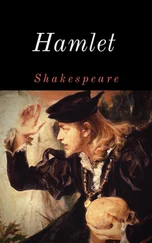
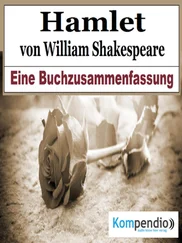
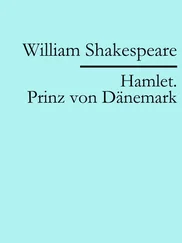


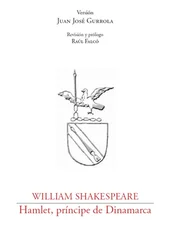



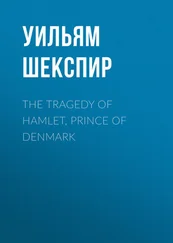
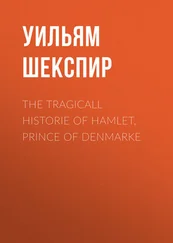
![Уильям Шекспир - The Works of William Shakespeare [Cambridge Edition] [Vol. 1 of 9]](/books/746589/uilyam-shekspir-the-works-of-william-shakespeare-c-thumb.webp)